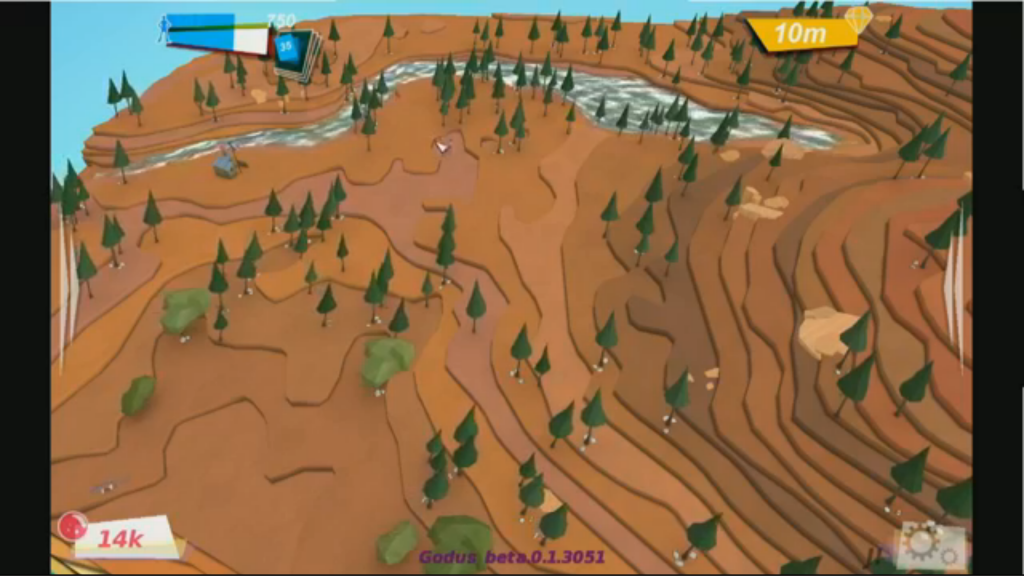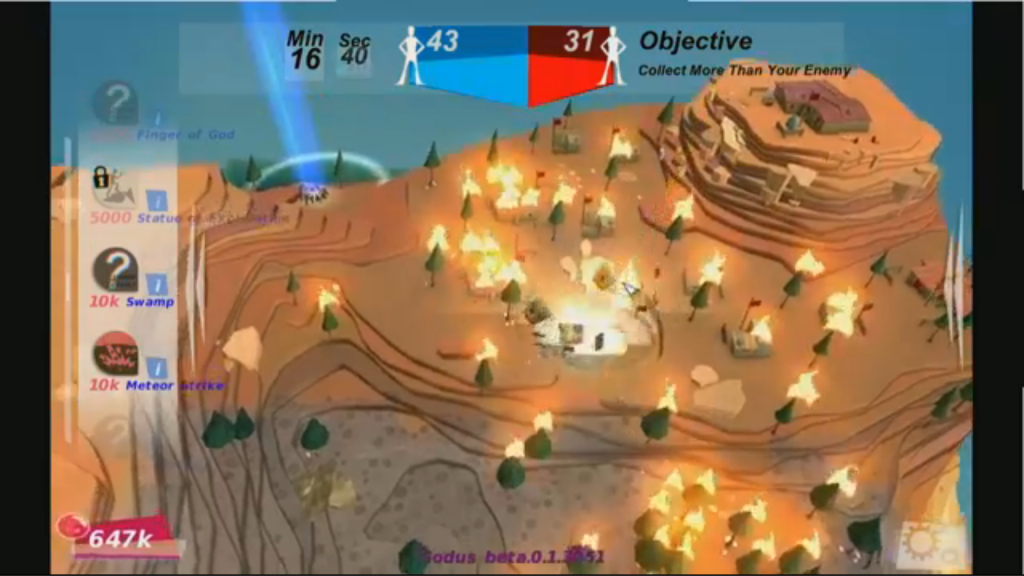Things are finally underway at PAX Prime in Seattle, WA. Many of the big shots in gaming are there to showcase new tech and games. Whether it be designers or business people, this weekend at PAX is all about looking forward into the future and the next big thing in our technology culture.
One of those designers showcasing their new game is Peter Molyneux, the creator of many innovative, creative, and often quirky video games such as Populous and Fable. Peter started his time slot on the main stage, which was dubbed “Story time with Peter Molyneux,” by talking about how he views the designing process of game making and by listing some series he has helped create. After giving a brief history about his road to eventually being an indie developer (he left Lionhead Studios in 2012 to create an indie studio called 22cans), Peter began to showcase his new project called Godus.

In Godus, players will assume the role of a god, a la Black and White, and will have the power to sculpt, shape, and transform their world into whatever way they see fit. While this is definitely something that has been explored before, the simulation systems in place are downright exciting, if not a little ambitious.
World sculpturing.
Peter stated that the hit building game Minecraft was “Brilliant and I’m going to steal from that.” During a live demo, he revealed that the sculpting of the landscape was as easy as point and click just like Minecraft but was also very complex due to the use of the butterfly effect; where the simplest change in landscape could potentially change the flow of water or the entire weather system. Also, through the use of cloud computing, each change made by a player would have some sort of effect on every other player playing the game. This means that if you block a water passage which changes the flow, a person on the other side of the world may see changes in weather in their game. And by world, I mean the game world. According to Peter, the game world is a big as Jupiter and will contain every player who plays the game.
Civilization style discovery.
Speaking of, Peter had this to say about Sid Meier’s Civilization series.
“I adore the epicness of Civilization…and I’m going to steal that.”
Since every player will be playing in the same world, eventually someone’s population will inevitably run into another person’s population. What happens then? Will two God’s work together to foster a mega empire? Or will war break out and destroy every living thing. That is up to the players to decide and Peter has a prediction.
“Most will be nice because we spent four months crafting the evil side in Fable and only 10% percent ever explored it.”
God powers and population
As mentioned before, the player will be in charge of a population that will rise or fall depending on how he/she plays. One of the main objectives of the game is to have a large population, and not just for bragging rights. The size of your population determines how much belief you receive. The more belief you have, the greater and more God powers you have. Some of the powers are basic like blessing things or cutting down trees, but some of the powers will require a large amount of belief like creating meteor showers that burn everyone in sight, or a smashing power that lets you squish people with your finger (affectionately known as “fingering”).
The God of Gods
One of the most ambitious features of Godus is the “God of Gods” title a player can earn every six months. If a player reaches this title, which has to be won in a competitive multiplayer type match, that player will be able to make small gameplay changes to the entire game world through cloud computing. This means that if the reigning “God of Gods” wants it to rain 24 hours a day, they can do that and every person will have rain in their game until the “God of Gods” turns it off. Also, while the player has the title, he/she will earn royalties on the game. That’s right, you will earn money based on how many people buy Godus during your reign. That could potentially turn into a big profit if you play your cards right. However, don’t get too excited just yet. The team at 22cans have already picked a “God of Gods” to start from a contest winner. His name is Brian. The God of Gods’ name is Brian.
Yeah, that just happened.
Godus looks to be an extremely ambitious title and there are some features I did not get a chance to cover, like the multiplayer. If done right, Godus could be one of the best God Sandbox games ever created. The beta starts September 13th of this year on Steam Early Access. So if you want to try it out, head over there. If you want to find out more about Peter Molyneux or 22cans, make sure you visit their website.







Published: Aug 30, 2013 04:04 pm